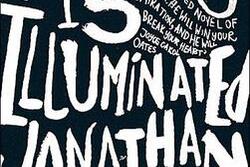Interpreting The Sun Also Rises
When I picked up a copy of The Sun Also Rises by Ernest Hemingway for my high school English class, I was surprised to find myself face to face with a mocking depiction of a Jewish character, Robert Cohn, right on the first page. As the book goes on, the antisemitism increases, with the other characters constantly criticizing and complaining about Cohn behind his back, looking for things they don’t like about him and blaming it all on his Jewish identity. It’s true that Cohn takes everything to heart, which can clash with the other characters’ easygoing natures. But that’s no excuse for his friends to constantly make antisemitic remarks.
Reading The Sun Also Rises was the first time I encountered depictions of antisemitism in this way, as an almost normal part of conversation and interaction. I didn’t know how to react to it. Should I just have ignored the antisemitism and enjoyed the vivid characters whose unique approach to life makes the novel an American classic? Despite knowing that the book was written nearly a century ago (it was first published in 1926), it felt hard to simply put the antisemitism to the side as a product of a different time. Robert Cohn is a central character. And the way he is treated reflects not just how people spoke but also how they thought.
The protagonist of the book is Jake, an American veteran living in Paris right after World War I. The book follows him and his friends on a trip from Paris to Spain. Among them are his friend Bill (who lives in New York), Cohn (the Jew who is also an American living in Paris), Brett (the woman that Jake is somewhat in love with), and Mike (an Englishman). Yet although Hemingway aims to depict a varied group of expatriates living in Europe, not all perspectives are equally represented. The most relatable characters are the ones that Hemingway could presumably relate to the most, the Christian American men, with Bill being the most realized character after Jake.
For example, with Cohn, the readers aren’t given much chance to understand his feelings. His character is depicted solely through a prejudiced lens. I didn’t want to let the antisemitism against him take away from my experience reading the book, but I also didn’t want to ignore it. So instead, I tried to look past it and focus on the positives in Cohn’s character. First of all, it’s worth noting that as much as the other characters criticize Cohn, they still invite him along on their trip, so they clearly do consider him a friend and value his company. Their “hatred” of him is expressed more in the words they use towards him than in their actions. Second, it’s not as though their aggressive tone with Cohn is unusual considering their treatment of one another. Most of the characters have a detached and cynical outlook on life that causes them to argue, fight, and insult each other, and then move on as though nothing happened. The main difference, when they fight with Cohn, is that they take the fighting one step further, bringing in Cohn’s Jewish identity as though it's just any other insult in order to set him apart from the rest of them. I don’t think the other characters really thought worse of Cohn than they did of each other. I even think they valued him. But the antisemitic prejudices of the 1920s were ingrained into them, and antisemitic retorts to Cohn seemed to always be on the tips of their tongues.
This seemingly inclusive but still prejudiced view is how the book treats most people that don’t fit the Christian, American, male archetype: not just Jews, but also women. Jake’s friend Brett is probably the most prominent woman in the group: adored by all, she casts a spell over the others that makes them willing to do anything for her. On the surface, she seems like a truly feminist character. She’s a liberated woman. She does what she wants, when she wants, and never lets anyone else get in her way. She makes her own choices and she has power over most of the men in the story. Even her haircut is short, not a stereotypical woman’s haircut at the time. Yet, there is still something that bothered me about Brett’s character and prevented me from fully admiring or relating to her. It’s the fact that she can’t handle the consequences of her actions. For example, at the end of the book, she sends a telegram to Jake to come all the way to Madrid to rescue her from a situation brought about by the choices she made. On the surface, she takes actions on her own, but she can’t move forward afterwards, ultimately still relying on a man to save her like the typical “damsel in distress” in a fairytale. She is not really an example of an independent woman. I appreciate the feminist way in which she makes decisions herself, but I wish she could have followed her own path all the way through.
A good book makes you think and The Sun Also Rises really did make me think about how Jews and women are simultaneously valued and criticized in society. In the end, how the book depicts its characters depends as much on the reader as it does on the text. It doesn’t really matter if the message Hemingway intended to send was antisemitic or anti-feminist. I found my own way to focus on the true friendship that Jake and Cohn have, and on the ways Brett does display her confidence and leadership. As twenty-first century readers, we have both a responsibility to recognize and criticize the offensive parts of the book, and a right to reinterpret this classic in a way that is meaningful to us, to look past the outdated aspects, and find our own message within its pages.
This piece was written as part of JWA’s Rising Voices Fellowship.








I'm not Jewish, but, having just recently picked up a copy of The Sun Also Rises and since I am reading it now for the first time, I must say I'm so shocked by the constant and casual antisemitism in the book that I felt the need to search online for articles about it. It makes it almost painful to read, and, since it crops up every few pages, it makes it that much harder to find what the novel is actually trying to say. Anyway, I guess I don't have a point. I just wanted to share.
Based on her reading of "The Sun Also Rises,"Maya Wisvanathan's reaction to Ernest Hemingway's novel is certainly understandable. As a Jew, I've had a similar reaction to that work. Still, one should be aware that, during WWII Hemingway developed a friendship with J.D. Salinger (a Jew), and in a letter to his friend, the editor and critic, Malcolm Cowley, wrote that the best-up-and-coming writers were J.D. Salinger, Truman Capote, and Carson McCullers (a woman). The arts have a way of compelling us to rise above many of the prejudices and small-minded thinking we grew up with.
This is a very well written commentary. I just reread The Sun Also Rises (I first read it in high school 45 years ago), and was uncomfortable with the antisemitism — not so much the criticism of the immature behavior of Robert Cohn (which was certainly no worse than the other characters), but the outright criticism of him being a Jew. As the author of this commentary explains so eloquently, times have changed and this wouldn’t be acceptable today.
Just re read and finished the book for the first time since I was 15 and of course, seeing it with such a different eye. Immediately went to the internet to look for a relevant review and this one is perfectly how I feel. Thank you for sharing it!